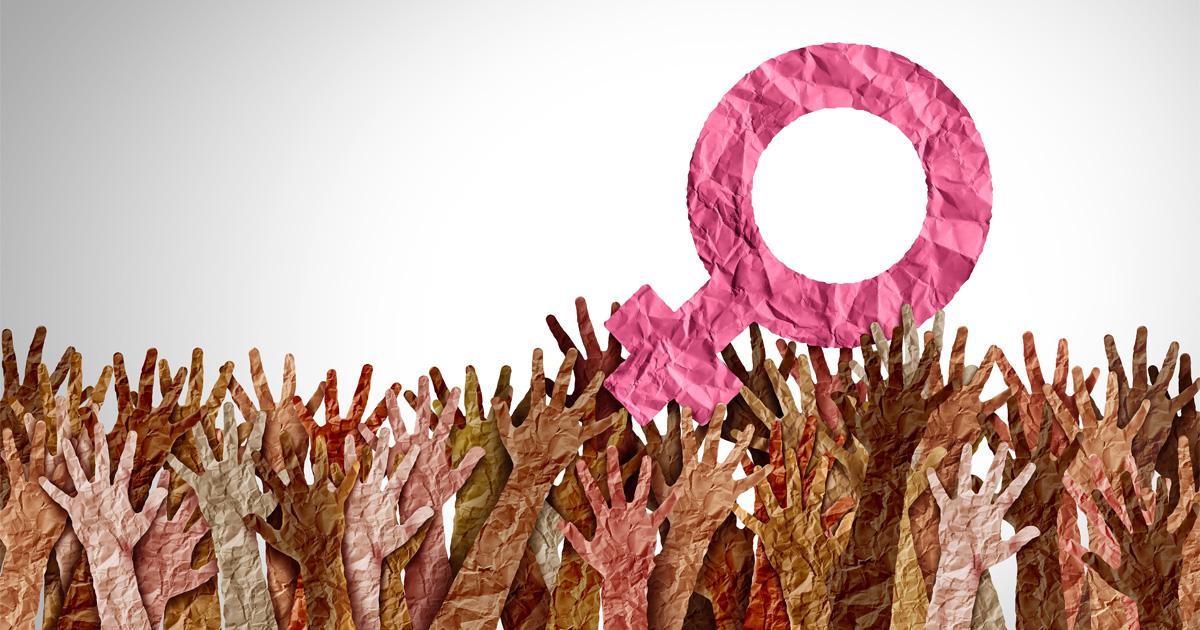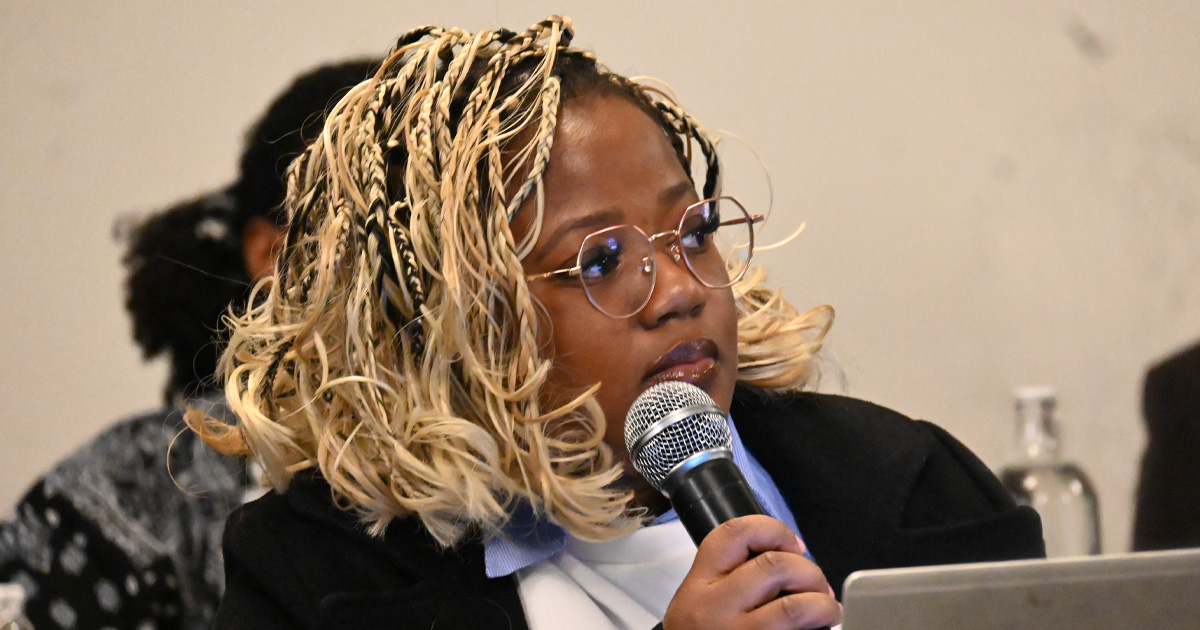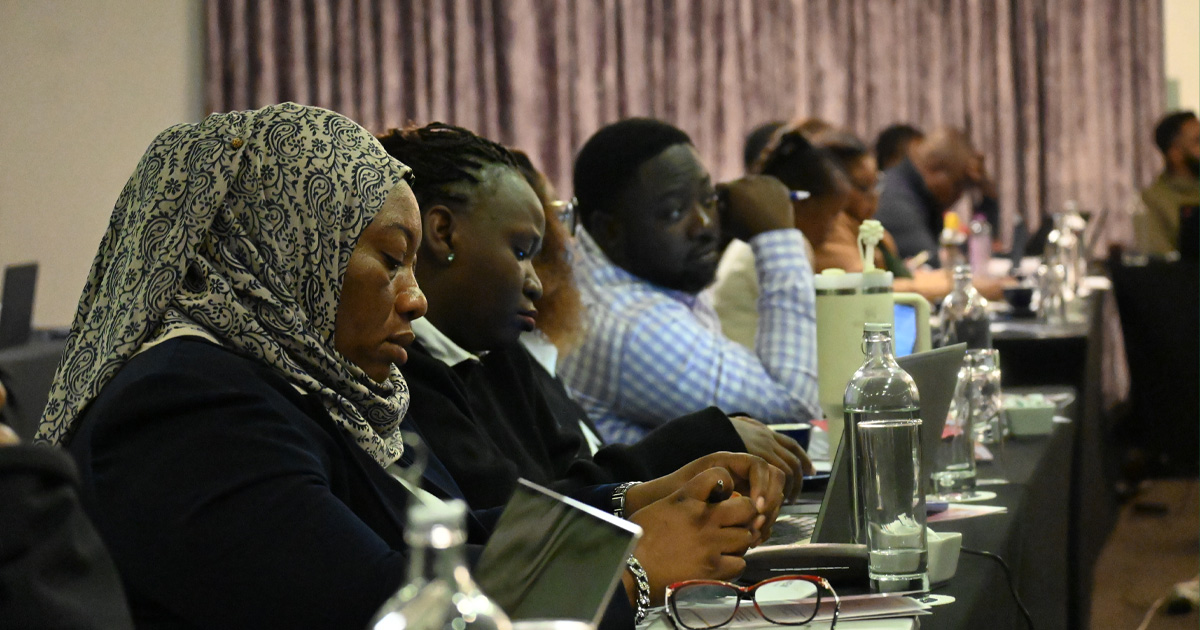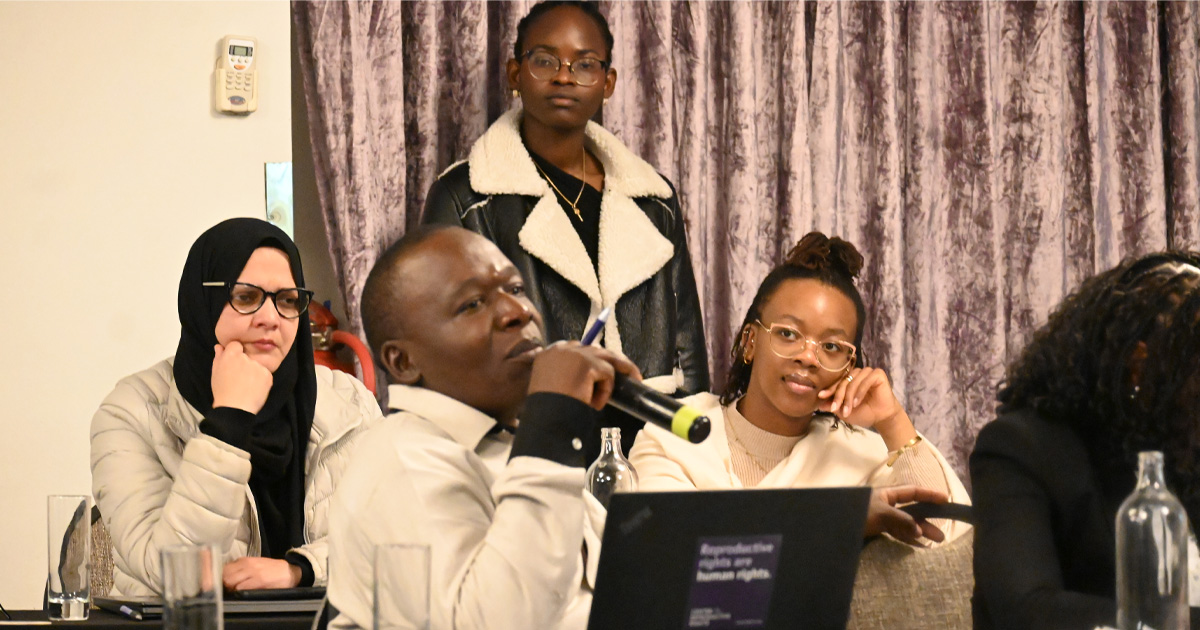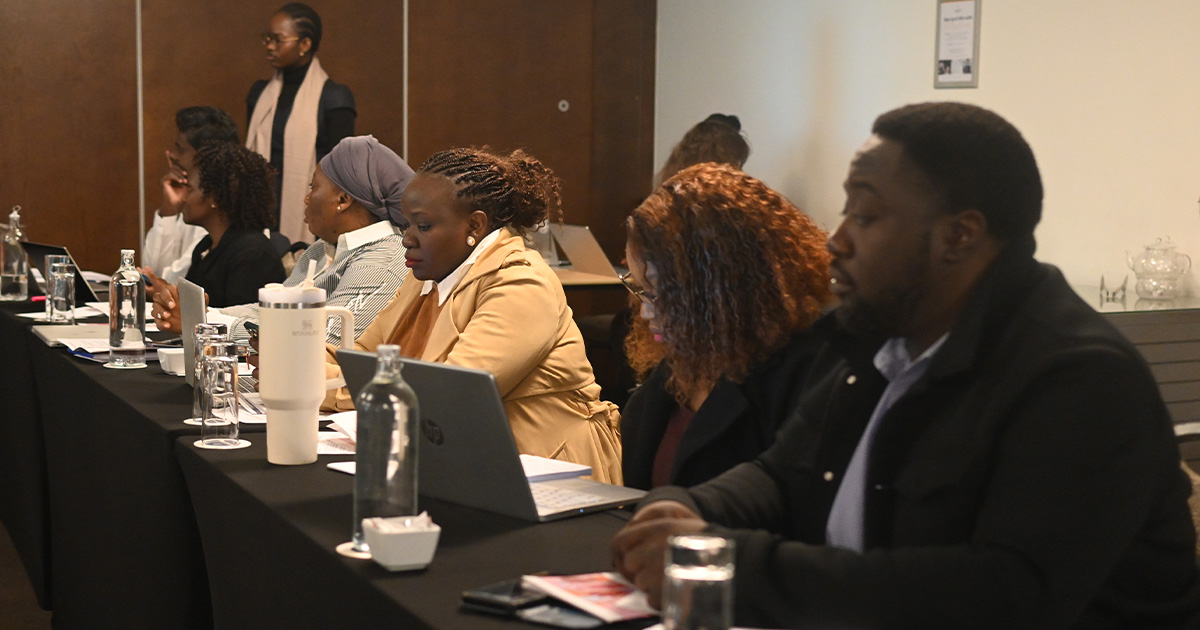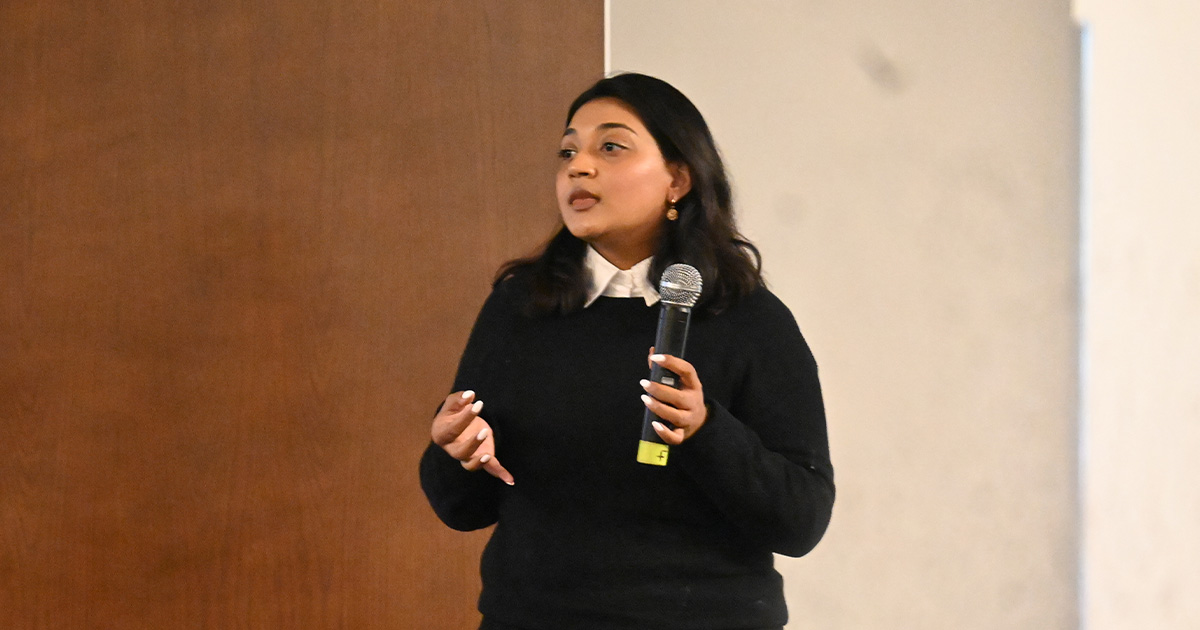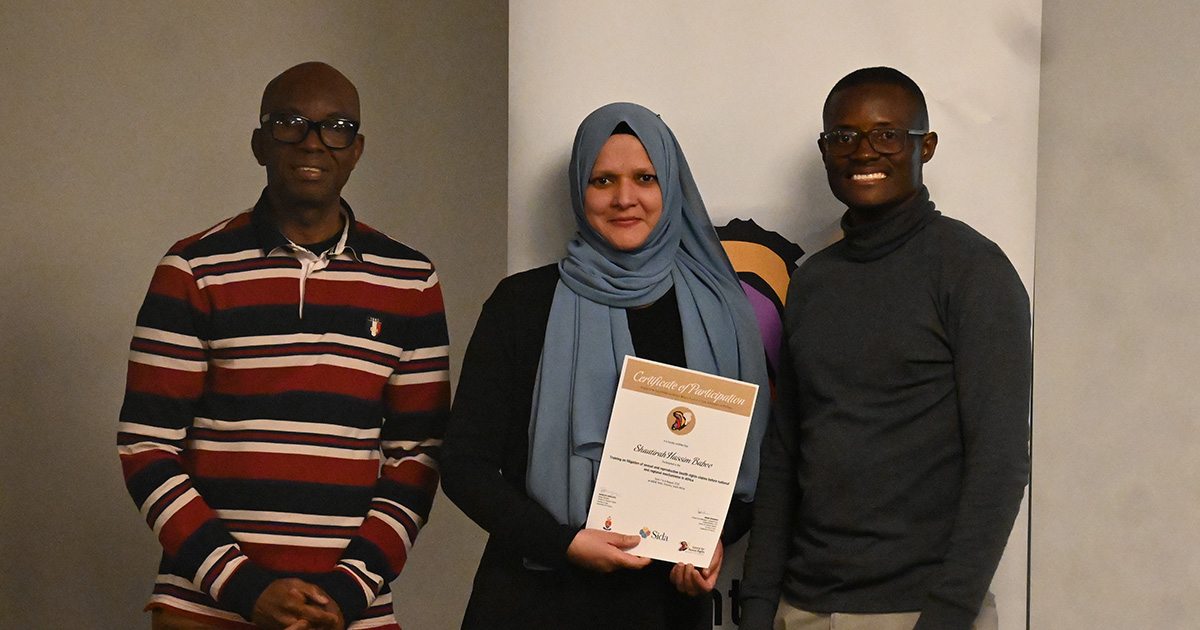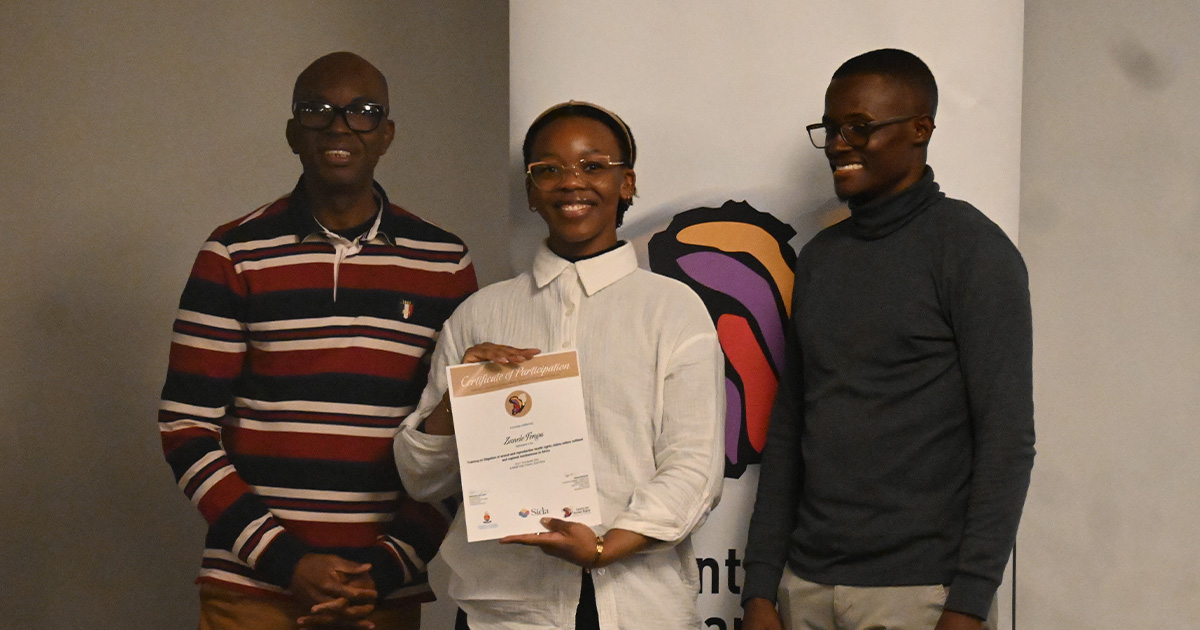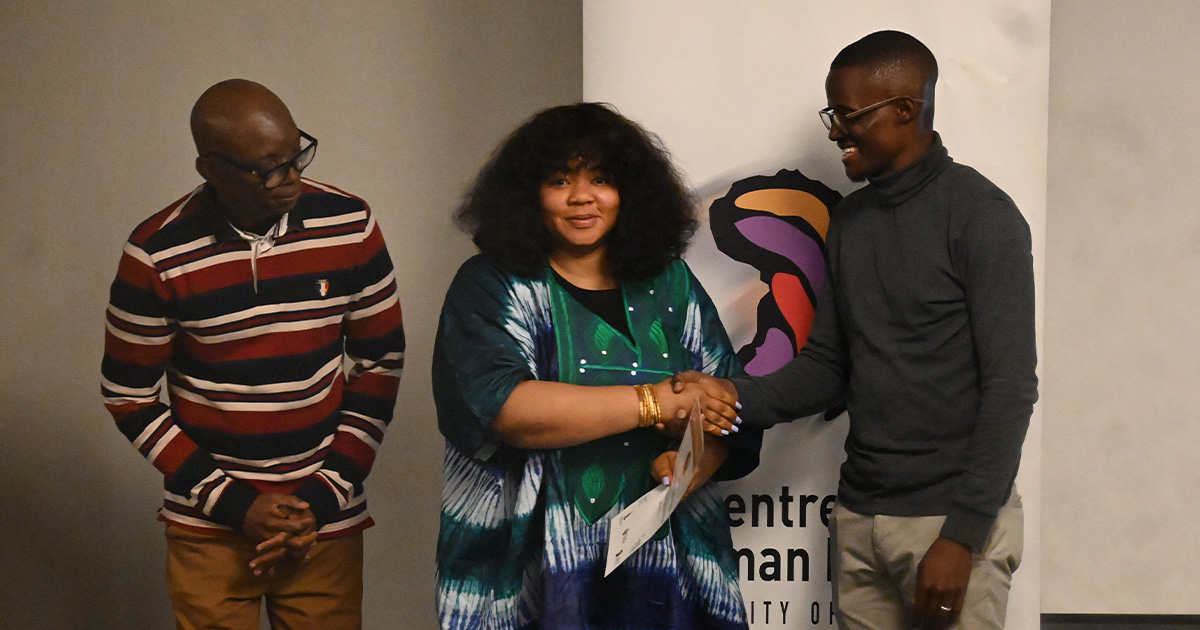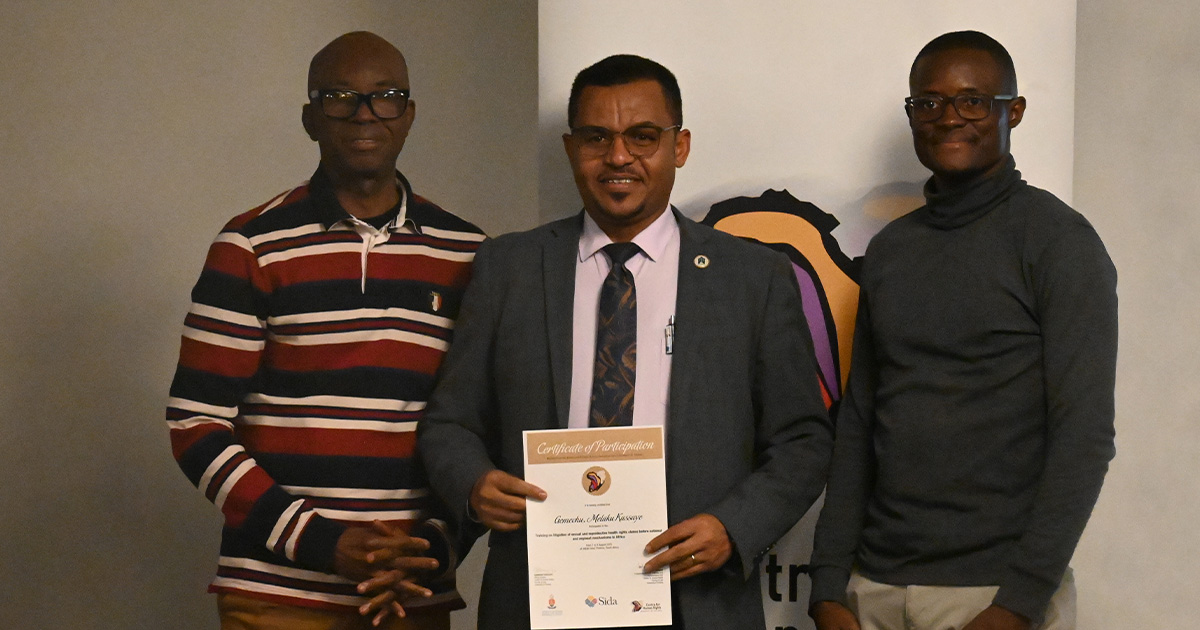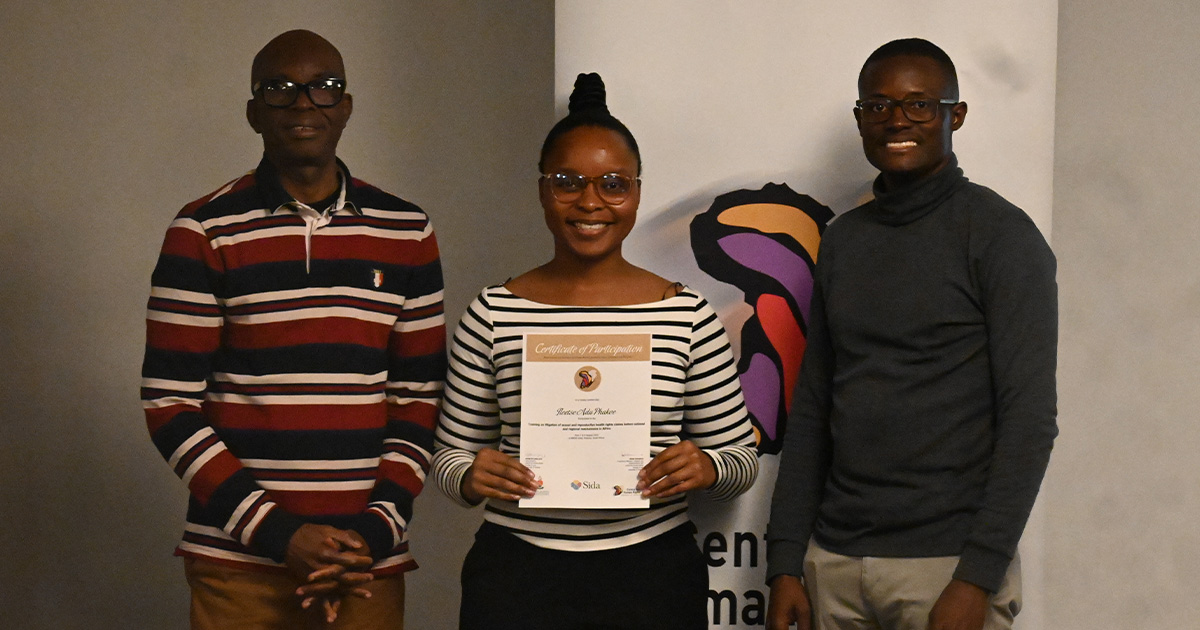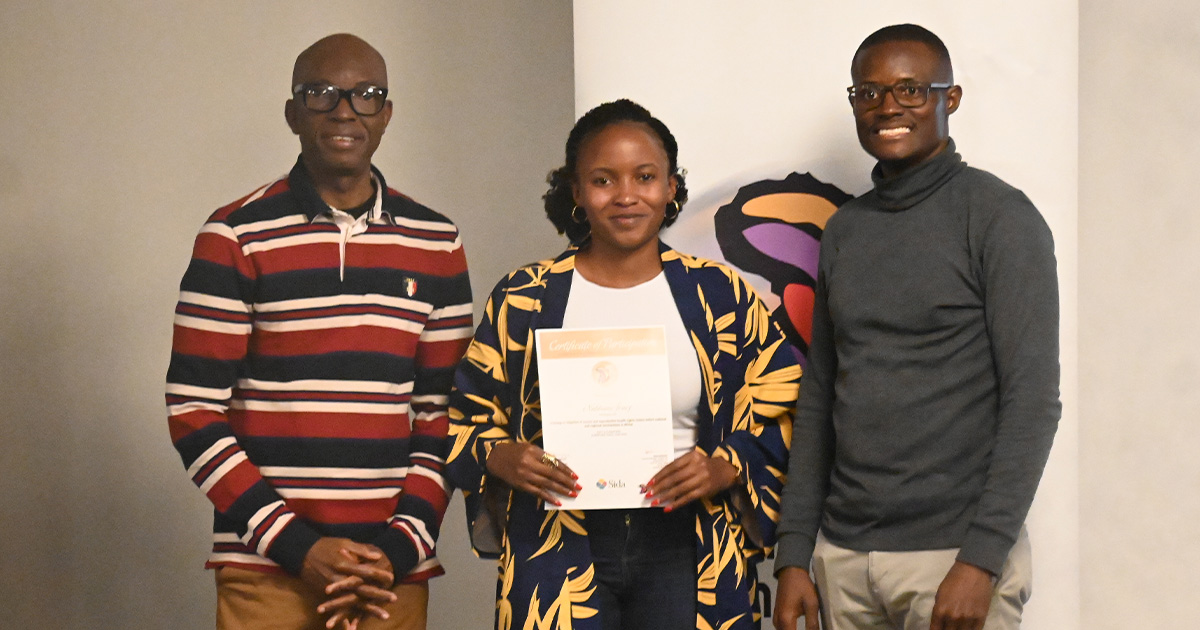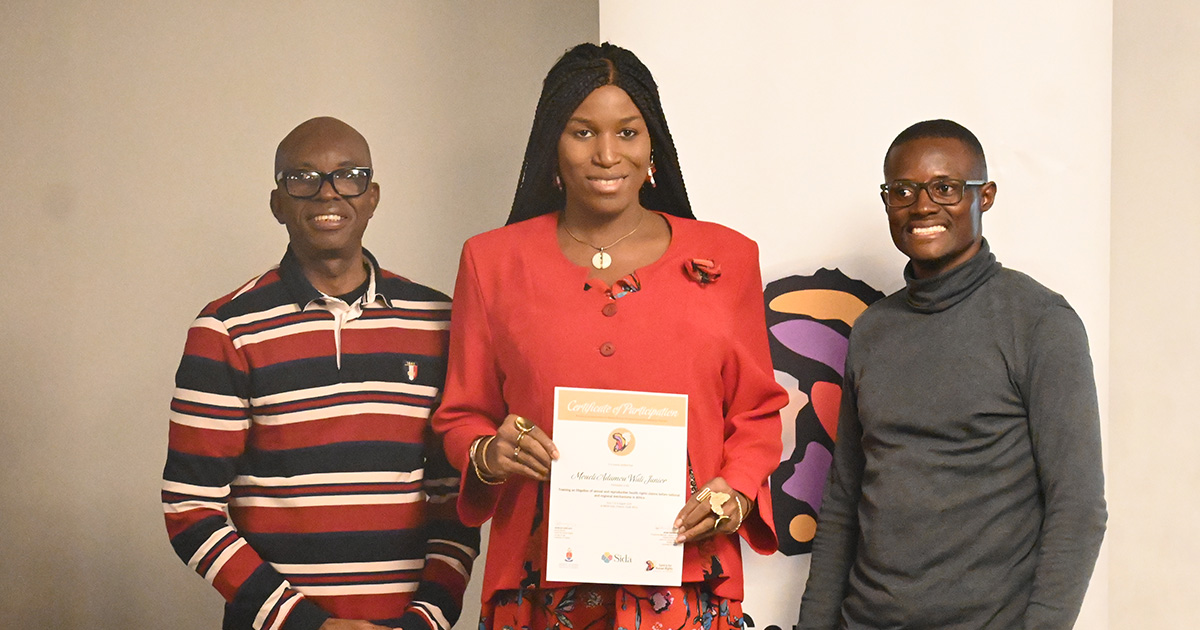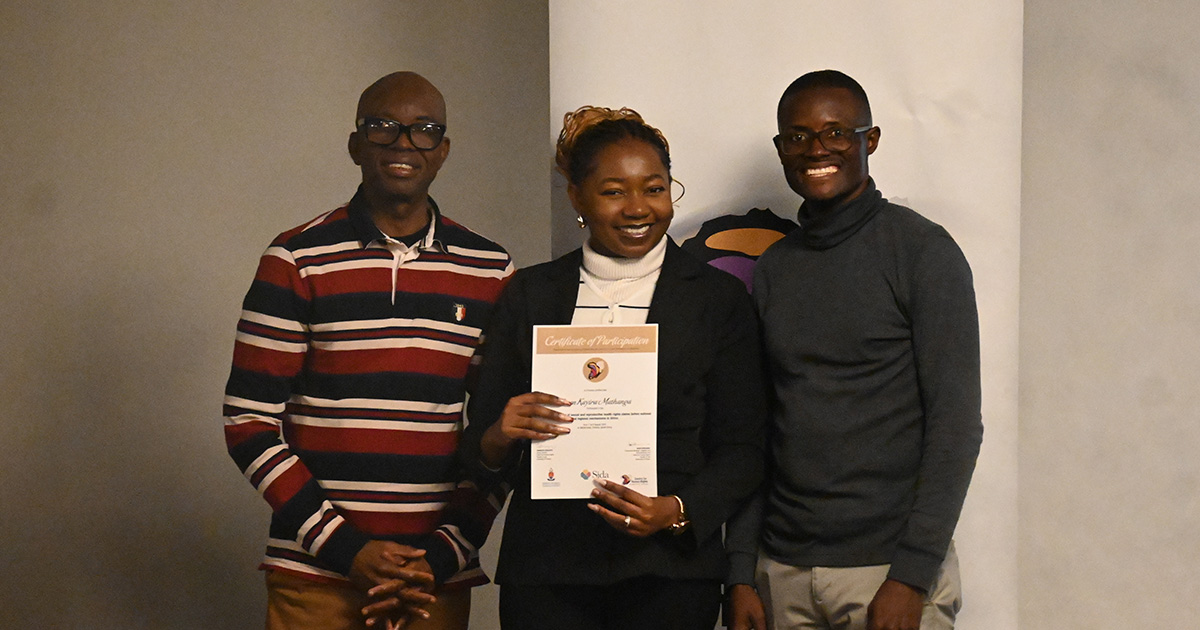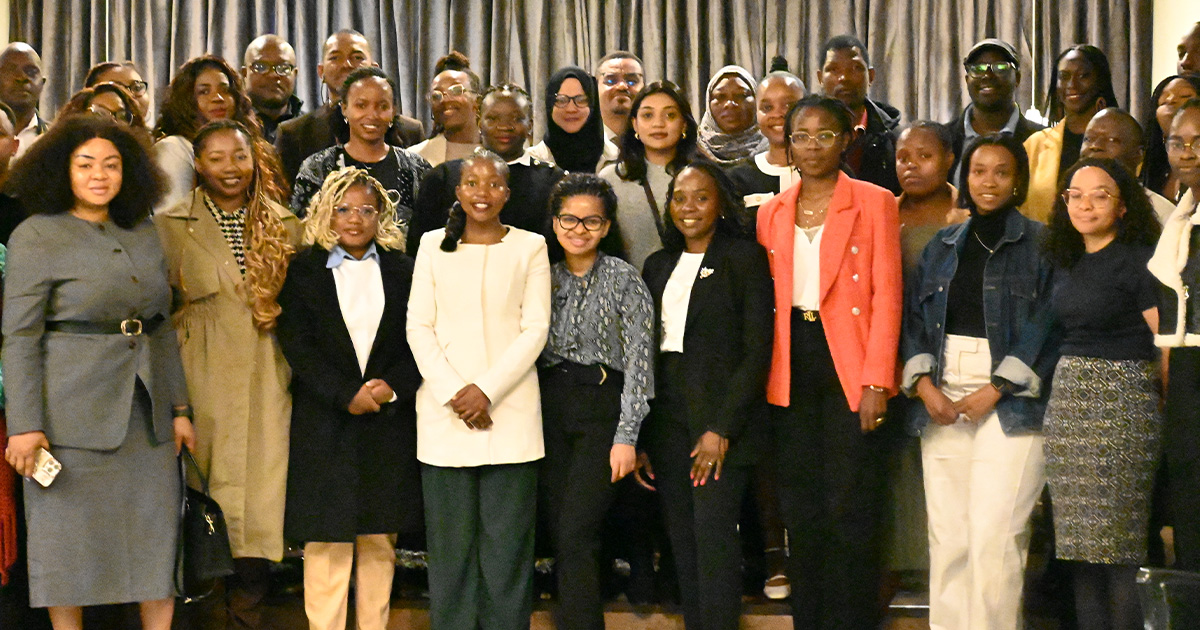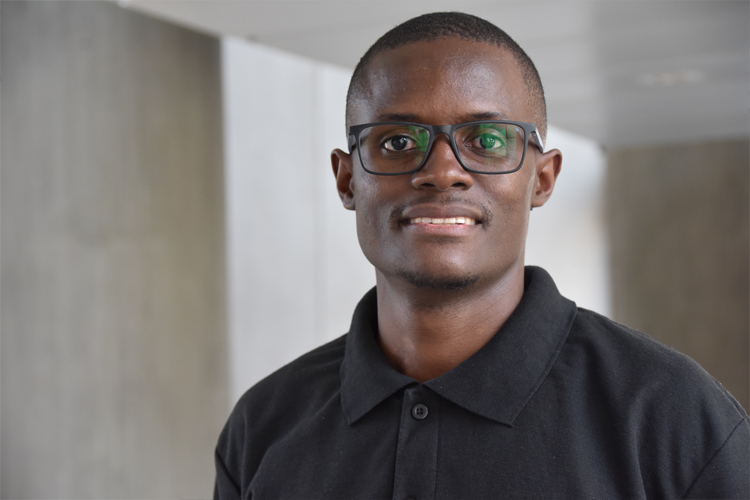On Thursday 7 and Friday 8 August 2025, the Centre for Human Rights, Faculty of Law, University of Pretoria, trained over 40 reproductive justice stakeholders from across Africa on the effective litigation of sexual and reproductive health rights (SRHR) claims before national and regional mechanisms in Africa. The training, which was hosted at ANEW Hotel in Hatfield - Pretoria, South Africa, was the third in a series launched in 2023 to equip SRHR actors with the theoretical knowledge and practical skills needed to conceptualise and effectively litigate cases to enhance judicial protection of SRHR.
Participants in the 2025 cohort were drawn from a total of 17 African countries spread across the continent (namely Sierra Leone, Democratic Republic of Congo, Gabon, The Gambia, Ethiopia, Uganda, Botswana, Lesotho, Eswatini, Zambia, Burundi, Zimbabwe, Malawi, Tanzania, Kenya, Nigeria and South Africa) and represented diverse stakeholder groups, including: judicial officers (including a Judge of the Supreme Court of Ethiopia and a Chief Magistrate from Uganda), State Prosecutors, SRHR focused CSOs involved in SRHR advocacy and litigation with operations at national and international levels, individual legal service providers, medical personnel, officers in national human rights institutions, policy analysts.
The training sessions over the two days covered both broad and specific themes. The general themes included: the theoretical background and normative standards relating to SRHR; the gaps and opportunities in litigating contemporary SRHR issues in Africa; as well as the procedural aspects and strategies for effective strategic litigation before national and supranational mechanisms. Specific attention was given to how to navigate the litigation journey from national to sub-regional and regional mechanisms including the requirements for advancing a case, as well as the exceptions and limitations such as the exhaustion of local remedies and State reluctance to sign the declaration under article 34(6) of the Court Protocol, to allow individual direct access to the African Court on Human and Peoples’ Rights.
On their part, the specific themes of the training included: emerging SRHR issues with a focus on harmful practices in the context of SRHR, particularly obstetric violence; SRHR challenges faced by vulnerable and marginalised women, including refugees and asylum seekers; as well as the technology-related aspects of SRHR and the associated risks such as misuse of personal data, including by artificial intelligence; perspectives on SRHR litigation within the criminal justice system – among others noting the barriers such as language differences, the expiry or absence of medical evidence, and changes in the legal classification of offences from criminal conduct to attempted criminal conduct.
The Centre for Human Rights wishes to thank the following subject matter experts and individuals who facilitated the training: Mr. Martin Onyango (Centre for Reproductive Rights); Dr. Olanike Adelakun (Lead University, Ibadan); Dr. Aisosa Jennifer Omuroyi (Socio-economic Rights Project Dulla Omar Institute); Ms. Chuma Bubu-Mdlulwa (Associate, Norton Rose Fulbright South Africa Inc) and His Worship Seruwo Banjamin Martin (Judiciary of Uganda).
The Centre also thanks the Swedish International Development Cooperation Agency (SIDA) for its financial support through which these trainings are hosted.
For more information, please contact:
Tel: +27680318715
brian.kibirango@up.ac.za@up.ac.za

